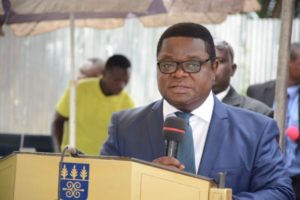Ghana’s economic independence a failure 65 years on – Experts

Economic experts say Ghana has failed to achieve the “economic independence” that forbearers of the country envisioned when the country gained self-rule from its colonial master 65 years ago.
They said though the 1966, 1972, 1979, and 1981 coups had impacted negatively on the efforts in achieving economic independence, not much had been done by various Government’s to totally wean the country off the West.
On the day of Ghana’s Independence (March 6, 1957), the President, Dr Kwame Nkrumah, was optimistic that the country, and for that matter Africa, was on the path to charting a new path and managing its economy for the well-being of its people.
He, therefore, profoundly proclaimed these words: “At long last, the battle has ended! And thus Ghana, your beloved country is free forever.”
He added that: “…And as I pointed out… I made it quite clear that from now on – today – we must change our attitudes, our minds, we must realise that from now on, we are no more a colonial but a free and independent people.”
This “free and independent people,” was to reflect particularly in Ghana, not only in political manifestation through self-governance, but also, through economic independence.
But some experts said 65 years on, that economic independence had not been achieved.
Professor Godfred Alufar Bokpin, an Economist with the University of Ghana Business School (UGBS), said: “Our forefathers who fought for us, if they were to be around today, they would not be happy because it wasn’t only for self-rule but a total liberation of the country and the continent but that hasn’t happened.”
Prof Bokpin stated that: “In terms of economic liberation or independence we’ve failed, and there are indicators that beyond one’s political ideology you can look at and say that our economy is very much dependent on them (the West).”
He emphasised that: “If you look at the number of times that the cedi has depreciated as a result of economic mismanagement, corruption, ballooned public debt, slam in commodity prices reflecting structural bottlenecks, it doesn’t tell you that we’ve gained economic independence.”
The Economist noted that though coups had derailed progress, the current economic situation: “Is an indictment on our resolve to have self-rule and determine the future destiny if our own country.”
He said there was the urgent need: “To end the elite capture, unnecessary tribalism and ethnicity, and love each other to want to have the best for each other in this country.”
He added that: “We need honesty and integrity. More of education is fine but more of integrity and honesty to the extent that we’ll shun corruption and deal with corruption aggressively with the same shame it appears.”
Prof Peter Quartey, the Director of the Institute of Statistical, Social and Economic Research (ISSER) noted that Ghana had not been able to achieve the anticipated economic independence associated with the self-rule.
He said the country had seen some improvement, particularly in communication and road infrastructure, poverty reduction and other areas, but added that: “Unfortunately, we’ve not been able to be economically independent.”
Going forward, he said: “We have to look inward and raise more domestic revenue through direct taxes. I’m not asking for an increase in taxes; the existing ones we should be able to collect them, like property rate.”
Prof Quartey also asked the Government to ensure that various State-Owned Enterprises were profitable and contributed to the national revenue.
Additionally, he called for a move from the economy being agrarian [move from a predominantly peasant farming concept] to supporting and investing in large scale commercial farming.
He said, “We should invest not only in production but in all the value chain, so that we can even be processing to add more value. We should be storing and processing so that food prices can be stable, and less dependent on imported food.”
Ghana, formerly, Gold Coast, gained independence from British colonial rule on March 6, 1957, becoming the first sub-Saharan Africa country to do so.
March 6, was declared Independence Day, a national holiday celebrated yearly in honour, and to celebrate the heroes of Ghana who led the country to attain its freedom.
Source: GNA
